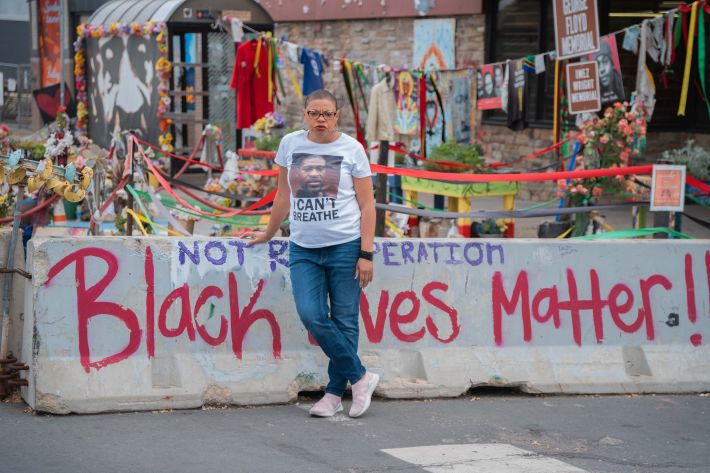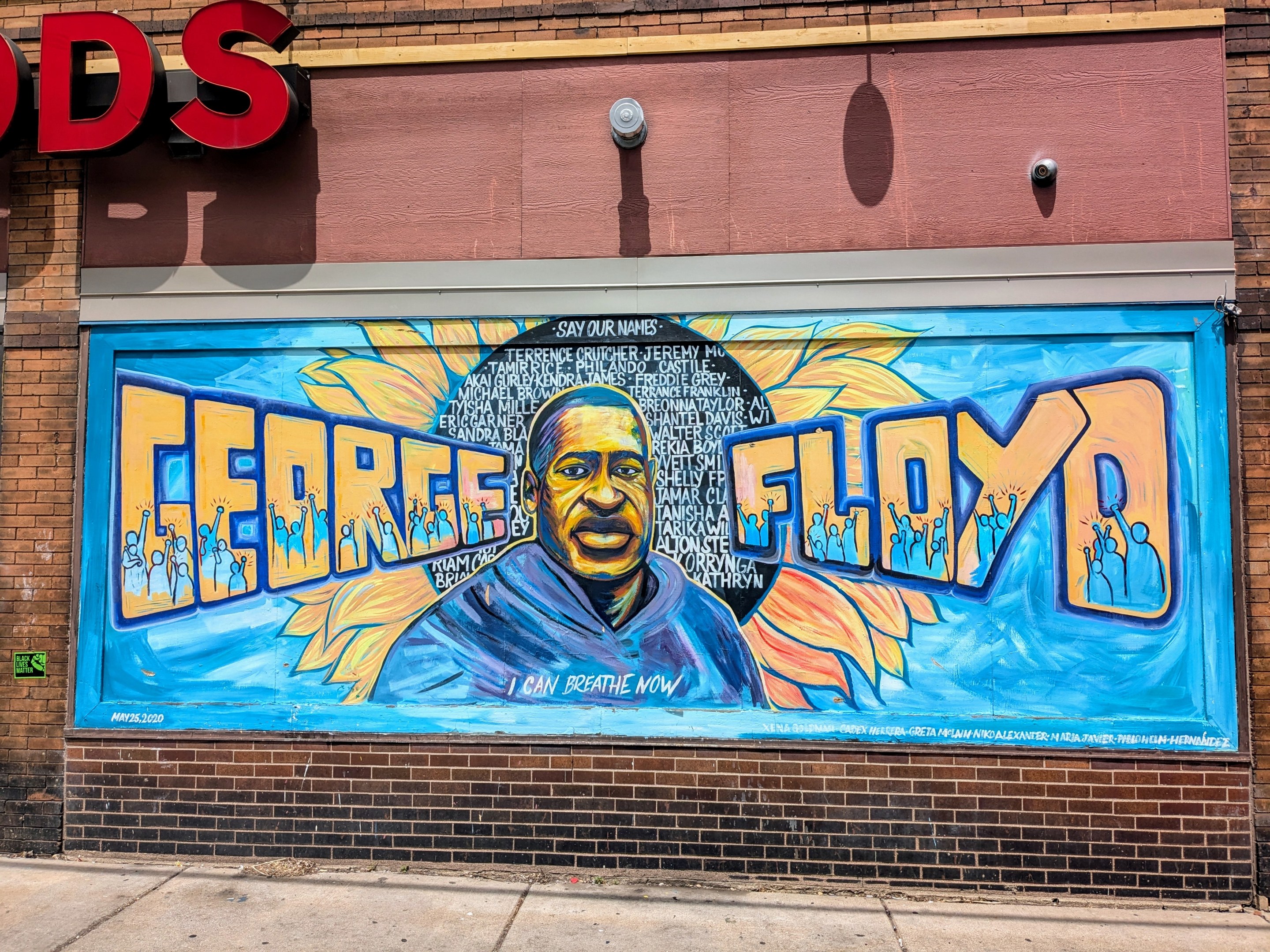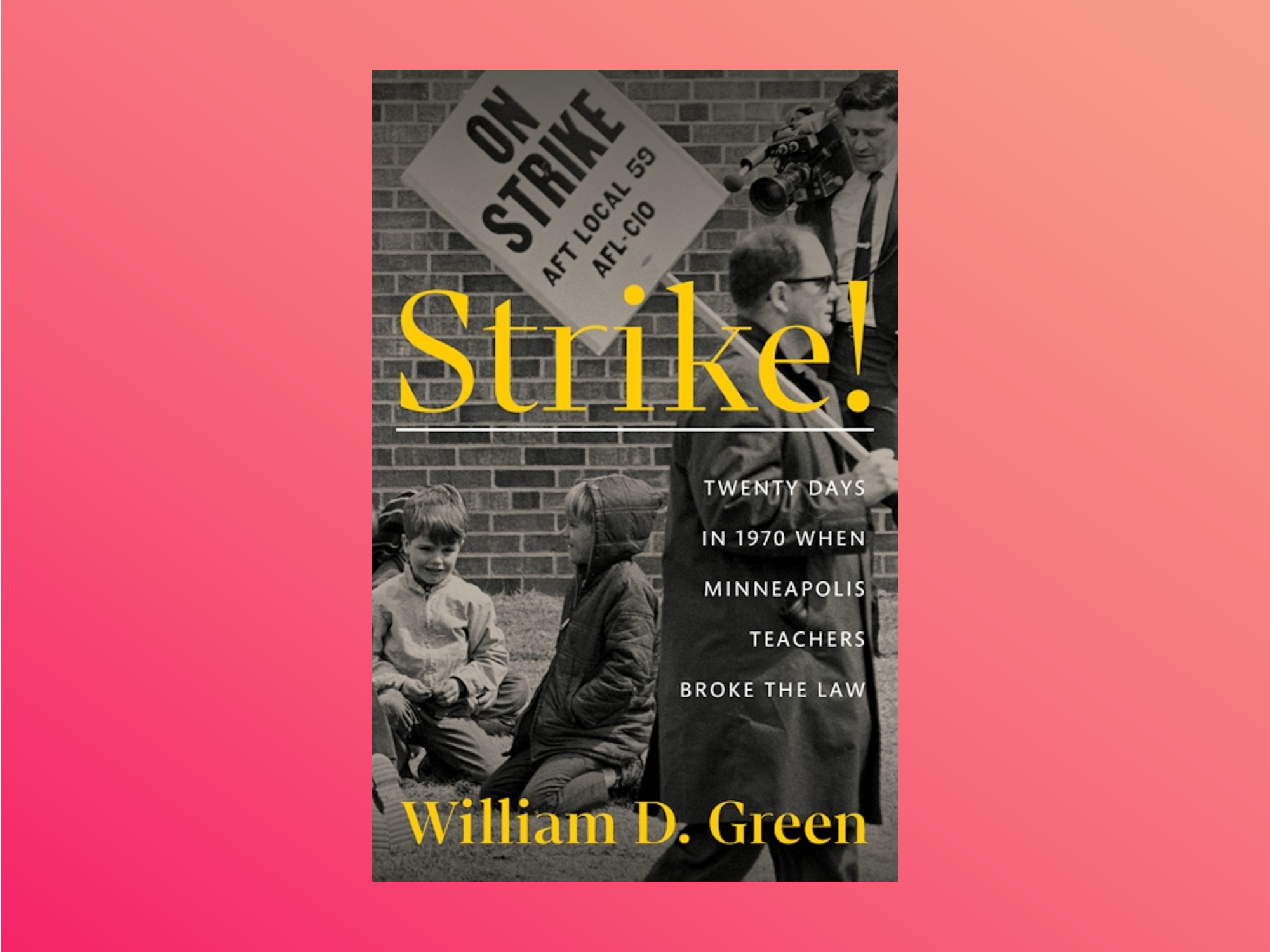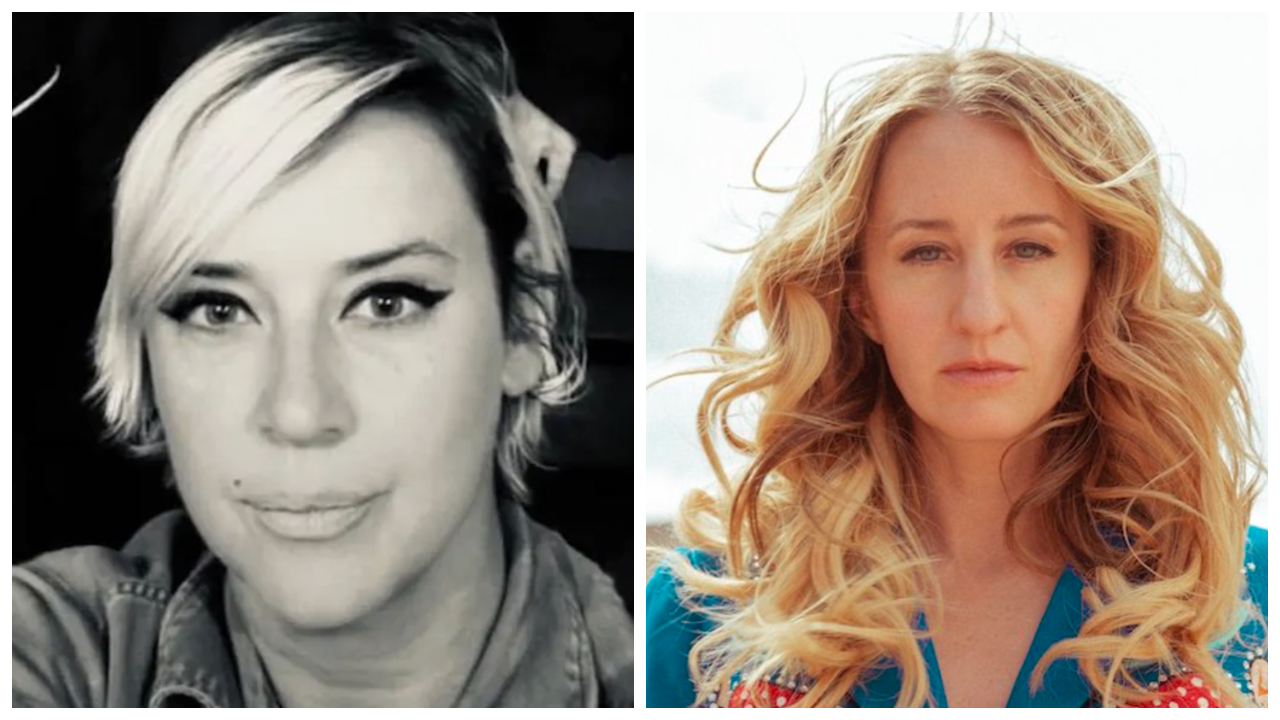It’s almost impossible to fathom the words that came from corporate America’s C-suites and boardrooms from Q2 through Q4 2020.
After video emerged of Minneapolis police officer Derek Chauvin pinning George Floyd’s neck to the ground for almost nine minutes, around 30 Minnesota executives signed a joint letter that promised "substantive change... to address racial inequities and social justice.” 3M CEO Mark Roman cited “decades and centuries of systemic racism” while pledging to “act now, act decisively” on racial justice initiatives. Best Buy CEO Corie Barry apologized for “not doing enough” to combat racial injustice. And Target CEO Brian Cornell? He didn’t need to wait for a trial before decrying “the murder of George Floyd” which had “unleashed [years of] pent-up pain.”
Today, the leaders of Minnesota’s largest companies are running scared from anything underneath the umbrella of diversity, equity, and inclusion. Corporate cowardice in the face of a right-wing assault on DEI is well-documented: 3M, Best Buy, Target, and dozens of other firms continue to frantically scrape away that politically unpopular trio of letters.
But this story isn’t about the current DEI panic. It’s about the enormous financial pledges Minnesota companies made in the wake of George Floyd’s murder, and whether or not they’ve followed through as the sociopolitical culture around diversity has reversed course.
Those economic commitments haven't been subjected to much scrutiny since 2020. In 2021, a trio of Washington Post reporters attempted to analyze "corporate America's $50 billion promise” to equity causes. They were only able to confirm $1.7 billion of that towering figure.
“Because these are pledges, there isn’t any one entity that will be holding these organizations accountable,” Dr. Una Osili with Indiana University’s School of Philanthropy told WaPo at the time. “I wonder about the follow-through—whether the will will be there in three to four years to continue to lift up these issues.”
So, five years after Floyd’s murder, we asked an assortment of powerful Minnesota-based companies: How much, exactly, of your pledge money has been distributed, and where was it directed? The 14 brands we approached were chosen based on our ability to easily document the commitments they made four or five years ago, back when these orgs flooded the media world with press releases about their giving. We heard back from seven.
That doesn’t mean the non-responders reneged on their pledges. It does, however, mean they opted out of the PR layup that would’ve come with showing your work, provided that work had been done. And, as you’ll see, holes can be poked in some of the confirmation language provided by the responders. As one one national reporter with experience on the topic assured us, this type of corporate accountability journalism ain’t easy.
Twin Cities media personality Sheletta Brundidge isn’t surprised by that rate of return. "You ain't gonna have too many people in this story besides me," she predicted to Racket, accurately. In addition to the 14 companies, we reached out to over a dozen professors, politicians, lawyers, and journalists, most of whom would not speak on the record.
Brundidge’s podcasting/production company, Sheletta Makes Me Laugh, has partnered with Target, General Mills, United Health Care, Comcast, and Bremer Bank. But that hasn’t stopped her from calling out corporate spinelessness around DEI.
"These companies are just chickenshit," she says. "We have too many Fortune 500 companies in the state of Minnesota with wimps as the CEOs—people who don't have a backbone, who won't speak truth to power, won't demand justice for other people. You thought for a moment there might be lasting change, but anybody who's Black, anybody who knows historically what this country is all about? They know that kinda stuff doesn't happen overnight. They knew it was going to be temporary, that it was never real. I know I did."

Earlier this year Brundidge refused a $10,000 offer from Amazon to sponsor Black Entrepreneurs Day, which she organizes annually at the Minnesota State Capitol, due to the tech giant’s elimination of DEI programs. In a fiery Star Tribune piece that paraphrases Jay-Z, Brundidge writes that Target “folded like a cheap card table during an intense game of dominoes at the family cookout” as the Trump administration blasts pro-diversity practices as “illegal and radical.”
"Real and lasting change takes marching, engagement, years of building, and winning the hearts and minds of people,” she says. “You put your faith in Target, Walmart, Best Buy? They're going to let you down. We all we got—Black people have got to stick together. I'm looking strangely at any Black person or organization that's taking a check from Target right now. [Target CEO] Brian Cornell does not want progress; he's looking for a Black person to buy."
Some tangible ways of measuring corporate equity commitments do exist locally.
The most telling might be the ghostly status of the Minnesota Business Coalition for Racial Equity (MBCRE), which was launched in 2021 by leaders representing 70+ statewide businesses, including ones from Target, General Mills, and Best Buy. Its stated aim: “building an equitable, inclusive, and prosperous state with and for Black Minnesotans.” MBCRE hasn’t posted an annual “Impact Report” on its website since 2023, the “News” section has been dormant for almost a year, and the collective’s social media channels haven’t been updated in almost two years.
When Racket reached out to confirm whether MBCRE is still operational, a third-party PR pro’s quick response suggested, yes, it’s still a thing. A greatly diminished thing, it turns out. She confirmed a report from last year that membership has plummeted to just 26 companies. The once-visible online membership list now sits empty.
Another corporate-backed equality initiative, the University of Minnesota’s Center for Antiracism Research for Health Equity (CARHE), will shutter at the end of the month in the wake of a plagiarism scandal. A $5 million grant from Blue Cross and Blue Shield of Minnesota made CARHE possible in 2021, and that gift bought the insurance company a rosy press cycle. "In order to transform our state, inspire change and improve health, we can't just say the right things—we must do the right things,” since-retired CEO Craig Samitt said via press release at the time.
Last week, a Blue Cross and Blue Shield spokesperson would only commit to “engag[ing] in discussions” with the U of M on “initiatives that can help everyone live their healthiest lives." (Emphasis ours.) Minnesota has some of the worst racial health disparities in the country, according to the Department of Health.
"The George Floyd money is gone, and it ain't coming back around," Brundidge says. "These companies didn’t make decisions based on changes in their heart or culture—they made a decision because everyone was watching."
As for the 14 Minnesota companies below? Of the $550 million pledged between 'em, they self-reported a combined $188 million of fulfilled promises—that's 34%. ($100 million of the $188 million reflects a big bank's commitment to "additional capital" access.) In an email to Racket, U.S. Rep. Ilhan Omar (D-MN) says she has “been working with the Congressional Black Caucus to hold these businesses accountable to ensure they uphold their previous promises,” adding that it’s “more important than ever” to combat systematic racism and protect DEI from right-wing attacks as the fifth anniversary of George Floyd’s murder approaches.
For now, all we can do is ask our state’s corporate power players whether their actions have matched their past press releases. Here’s what they had to say.
UnitedHealth Group
Minnetonka-based health care and health insurance company with $400.3 billion in annual revenue
Past Racial Equality Rhetoric
"George Floyd's death is an unspeakable tragedy. Communities all across America are struggling to make sense of what's happened and how we as a society pull together to move forward, heal, learn, and grow," CEO David Wichmann, whose 2019 compensation package exceeded $52 million, said via press release in 2020.
Pledge
$10 million and 25,000 volunteer hours, including college scholarships for Floyd’s five children and $5 million for YMCA of the North’s Equity Innovation Center of Excellence.
Response to Racket
None.
Current Actions
In 2022, the UnitedHealth Group website featured an “Advancing Health Equity” section on its prominent “What We Do” page. Today, you’ll find no language about diversity or equity among the “Strategic Growth Priorities” highlighted there.
Earlier this year TechCrunch discovered that the company’s DEI page had been dismantled and replaced with one labeled “Culture of Belonging.” "We comply with existing and emerging laws while striving to support what is best for the communities we serve,” reads the entirety of its PR explanation to Reuters.
Three years ago the UnitedHealth Group Equity Innovation Center was displayed prominently on the Y's website, though today there’s no mention of UHG or even the center itself. UHG helped bankroll the center into existence in 2018, two years before Floyd’s murder; that press release no longer appears online.
Worth at least mentioning: Luigi Mangione, who’s accused of murdering Brian Thompson, CEO of UHG’s UnitedHealthcare division, allegedly targeted the Fortune 500’s fourth-largest company last December because it’s so representative of corporate greed.
Target Corp.
Minneapolis-based big-box retail company with $106.6 billion in annual revenue
Past Racial Equality Rhetoric
CEO Brian Cornell, whose 2020 compensation soared to $77.5 million, had a lot to say about equity, social justice, and diversity in the months after George Floyd’s murder.
“I recognize that it’s time to take it to another level, and that as CEOs, we have to be the company’s head of diversity and inclusion,” he said during a 2021 interview with Ulta Beauty CEO Mary Dillon. “For so many of us, we saw [Chauvin’s guilty verdict] as a sign of progress, a sign of accountability, but also a recognition that the work is just starting.” That sentiment was echoed in a 2022 press release headlined: “We Are Never Done: Inside Target’s 2019-2021 Diversity, Equity & Inclusion Journey—and Where We’re Going Next.” You’ll never believe where Target went next…
Pledge
$110 million toward a vast suite of initiatives, including 10,000 hours of pro-bono consulting for BIPOC-owned businesses and an additional $2 billion in spending with Black-owned businesses by 2025.
Response to Racket
None.
Current Actions
This year Target has become the poster child for DEI hypocrisy, inspiring ongoing boycotts of its brand. Two years earlier, the retail giant spurred boycotts when it scaled back a Pride Month collection that upset anti-LGBTQ+ activists.
This current wave of boycotts has led to decreased foot traffic in stores, per data from Placer.ai, and Cornell admitted in a recent email to staff that, “silence from us has created uncertainty… [during] a tough few months.” Cue the I Think You Should Leave hot dog costume meme.
Best Buy Co. Inc.
Richfield-based electronics retail company with $41.5 billion in annual revenue
Past Racial Equality Rhetoric
“We know it’s incredibly important to our employees, customers and communities to show that we are committed to doing all we can to further economic and social justice,” CEO Corie Barry, whose 2023 pay hit $14.4 million, said in 2020. “In many ways, we have engaged in these issues for years—but now we’re being bold about our commitments to hold ourselves accountable for this work we’ve promised to do.”
Pledge
$44 million on college prep and career opportunities for BIPOC, including investments to teen tech centers, the creation of a Twin Cities scholarship fund, and offering jobs to 340 teens.
Response to Racket
None.
Current Actions
Best Buy chose to remain silent when the Star Tribune asked about DEI in February, the same course chosen by 3M, UnitedHealth Group, Target, Medtronic, U.S. Bancorp, and others. The company is reportedly scrubbing language around DEI as it applies to executive bonus compensation, instead opting for the phrase “culture of belonging,” Bloomberg reports.
Elsewhere, Best Buy is facing a pressure campaign from a major investor, the office of New York State’s comptroller, over its commitment to LGBTQ+ issues. “Despite our efforts to engage with Best Buy on its commitments to LGBTQIA+ employees and the wider community, management and the Board continue to ignore our requests for full transparency on the company’s actions,” Comptroller Thomas P. DiNapoli says in a statement, adding that his office plans to vote against the reelection of Best Buy’s board chairman.
U.S. Bancorp
Minneapolis-based financial company with $27.3 billion in annual revenue
Past Racial Equality Rhetoric
"We talk about the importance of diversity, equity, and inclusion as a society, but it is hard to say progress is being made when these are the headlines dominating the news," CEO Andy Cecere, whose 2023 compensation fell just shy of $23 million, wrote in an email to employees in May 2020. "We have to do better, and I believe we can start right here at the bank."
Pledge
$100 million “in additional capital to African American owned and operated businesses and organizations,” plus $15 million in small business, affordable housing, and workplace development grants to combat "systemic economic and racial inequities" around the country, and $1 million to launch “a community development financial institutions partnership program” intended to distribute grants and loans.
Response to Racket
PR man Jeff Shelman called Racket by phone to make sure we received his confirmation that, “We did meet our pledge of $100 million in capital, $15 million in community grants and $1 million to CDFIs.” Shelman pointed to his company’s reconstruction of two local branches that were damaged in the uprising after Floyd’s murder, in addition to the donation of one location—the 2.4-acre site at 2800 E. Lake St.—to a nonprofit developer.
Fans of heightened scrutiny might note that a $100 million capital infusion is more or less U.S. Bank moving additional units—financial products from which it stands to profit. That said, the U.S. Census Bureau does consider difficulty accessing capital to be an obstacle for minority business owners.
Current Actions
Since 2020, U.S. Bank has made headlines for complaints of discrimination from Black customers, a phenomenon called “banking while Black.” Wrote Cecere in 2021: "I am deeply sorry for where we failed and accept full responsibility.”
Banking Dive found that U.S. Bank’s latest 10-K filings with the U.S. Securities and Exchange Commission lack the DEI sections found in previous reports, including its pledge “to interview at least one woman or person of color for all roles.” Competitors Morgan Stanley, JPMorgan Chase, and Citigroup are following suit, the Washington Post reports.
Last year during a House Financial Services Committee hearing, Rep. Ayanna Pressley (D-MA) discussed a letter she sent to the CEOs of the nation's five largest banks—U.S. Bank, JPMorgan, Bank of America, Wells Fargo, and Citi—requesting answers about their racial equality pledges. "Our final analysis is that steps have been taken but not enough. We need long-term change, not just one-time investments, to root out racial injustice in the banking industry," she testified to Treasury Secretary Janet Yellen.
Rep. Pressley then asked Yellen if she agrees that racism and racial inequality are indeed threats to the financial system, eliciting the resounding response: "Well, it could be."
3M Co.
Maplewood-based conglomerate with $24.6 billion in annual revenue
Past Racial Equality Rhetoric
“It’s unacceptable. We have to do something. We have to do something different," CEO Mark Roman, whose 2023 compensation exceeded $16 million, told Vanity Fair in June 2020. "Companies have to step up. Company leadership has to step up and act to make a difference... I’m focusing my efforts here in the Twin Cities engaging CEOs here on, how do we really step into action this time?"
Pledge
$50 million toward racial equality initiatives, Twin Cities Business reported in September 2020, including $5 million for scholarships awarded through the United Negro College Fund.
Response to Racket
A nameless 3M PR rep directed Racket via email to the company’s 2024 annual report, which states, “Since 2020, the Company has invested $50 million to address opportunity gaps through workforce development initiatives in the communities in which its employees live and 3M business operates.” When asked for specific examples of where the money was directed, the rep linked to this “People and Community” page on 3M’s website. There’s no language about diversity, racial equity, or inclusion, although STEM references abound.
Current Actions
It’s possible that page once included mentions of DEI. Probable, even. Earlier this year MinnPost discovered that 3M had wiped its DEI material off the web, possibly out of fear over its many contracts with the federal government. “What we are seeing from companies like 3M and CenterPoint Energy is a part of a disturbing trend in response to some of the mandates and dictates under the Trump administration,” civil rights lawyer Nekima Levy Armstrong tells MinnPost.
You can’t accuse 3M of discriminating when it comes to PFAS—aka forever chemicals. The company knowingly poisoned a vast swath of the eastern Twin Cities metro with those for decades. While not necessarily true here, the spread of forever chemicals disproportionately pollutes U.S. communities of color, according to the Harvard School of Public Health.
Medtronic
Fridley-based med-tech company with $33.2 billion in annual revenue
Past Racial Equality Rhetoric
"What I can say is that I won’t tolerate it—whether it be the act that killed Mr. Floyd or the acts of those burning this city," CEO Geoff Martha, whose 2022 compensation topped $7 million, wrote to Medtronic workers (and later LinkedIn followers) in May 2020. "What I can say is that I—and we—must be better than that and that we will continue to give our time, our resources and our attention to make this better."
Pledge
$16 million toward “partnerships with organizations working to bring about social justice and equity, improve the lives of Black Americans, and help heal and advance the broader community,” including giving directed to the Thurgood Marshall College Fund, the Northside Achievement Zone, and the People’s Center Clinics & Services.
Response to Racket
None.
Current Actions
Medtronic appears to have recently doubled down on DEI, which drew scorn from right-wing grievance mill Alpha News. The medical device manufacturer's 2024 annual report highlights things like diversity, inclusion, and pay equity.
General Mills Inc.
Golden Valley-based food manufacturing and marketing company with $19.6 billion in annual revenue
Past Racial Equality Rhetoric
"It is clear from George Floyd’s death—and the many that preceded it—that systematic injustice and racism still exist," CEO Jeff Harmening, whose compensation topped $18 million last year, wrote in June 2020. "And we begin with a commitment to both convene courageous conversations—and take courageous actions."
Pledge
In August 2020 company officials told the Star Tribune that General Mills would double its number of Black managers, increase the percentage of racially and ethnically diverse professional positions from 19% to 25%, and double money spent with minority-owned vendors. Unlike many other businesses on this list, General Mills didn’t associate dollar amounts with its pledge.
Response to Racket
None.
Current Actions
General Mills is currently dealing with a federal lawsuit filed last year by Black workers at one of its Georgia facilities. They allege that the cereal giant “embraced a racially hostile work environment” controlled by “white supremacists.” A General Mills spokesman wouldn’t comment directly, but did assert that the company has a “long-standing and ongoing commitment to diversity, equity and inclusion.”
Maybe not in those words, exactly, these days. When pressed by the Star Tribune in February, spokesperson Mollie Wulff admitted that Trump’s executive-order assault on DEI could change how General Mills operates. “In an ever-changing landscape, we continuously evolve to meet the needs of our business,” she said in a statement. Sounds like the “courageous actions” Harmening alluded to are going the way of the Fruit Brute.
Xcel Energy Inc.
Minneapolis-based electric and gas utility company with $13.4 billion in annual revenue
Past Racial Equality Rhetoric
"[Floyd's murder] was a heck of a wakeup call... There's a lot of things we're doing,” since-retired CEO Ben Fowke, whose final year of compensation soared over $22 million, said during a February 2021 podcast interview.
Pledge
In July 2022, Xcel pledged $9 million toward its Resilient Minneapolis project, which would’ve created three “resiliency hubs”—i.e. solar rooftop installations and battery storage tech—at the Minneapolis American Indian Center, Sabathani Community Center, and Renewable Energy Partners HQ.
“This year we're measuring it, and we're measuring it on our scorecard, which is part of our annual incentive plan,” CEO Fowke added during that ’21 podcast. “And I think that's important because this is not something I want to fade away, as the event becomes further and further behind us."
Response to Racket
When Racket asked for specific figures recorded on that scorecard, Theo Keith, who you might remember from his political reporter era on Fox 9, used his newish role as Xcel’s senior media relations rep to say… well, just take a look for yourself:
The Organizational Health metric on our annual corporate scorecard incorporates outcomes from our executive sponsorship program, use of interview panels, and questions on relevant topics (such as work culture, belonging, authenticity, recognition, empowerment, speaking up) in our employee engagement surveys. We have a longstanding commitment to creating a workplace based on core values, which inherently include mutual respect, acceptance of others, and delivering results. We firmly believe our approach, which is embedded in our Code of Conduct, has been instrumental to our business success and meets the expectations of our employees and the communities and customers we serve.
Right. We followed up, asking for specific year-over-year wins or losses related to racial equity within the company, as well as an update regarding the pulled funding from the North Side solar project. We’ve yet to hear back.
Current Actions
Eleven months after a victory lap in the press, Xcel angered city officials by announcing the cancellation of its Resilient Minneapolis efforts. “These projects were negotiated with the city of Minneapolis and approved by the state Public Utilities Commission, and hundreds of hours of collaboration and evaluation have gone into making the projects a reality,” city comms rep Sarah McKenzie told Sahan Journal in 2023. After Xcel received a grilling from the Public Utilities Commissions, the utility revived the Sabathani project last year with help from a federal grant.
Hormel Foods Corp.
Austin-based food-processing company with $11.9 billion in annual revenue
Past Racial Equality Rhetoric
"While we may not have control over what happens on a street in Minneapolis, we can control and ensure that racism, discrimination and injustice never happen here," CEO Jim Snee, whose 2023 compensation hovered above $8 million, wrote to employees in June 2020. "We must move beyond words and statements. As a global company, we must demonstrate that we embrace our differences and recognize that diversity fuels our excellence as an organization."
Pledge
In August 2020, Snee told the Star Tribune his company would provide two years of community college tuition for any of its U.S. employees’ children. The program was in the works before Floyd’s murder, but Snee said the social unrest that followed “really accelerated” it.
Response to Racket
“Through calendar year 2024, we’re proud to share that more than 530 scholarships worth more than $2 million have been granted and we have an additional 185 scholarships in the pipeline,” Hormel spokesman Dean Peters says. “This program has been a powerful way for us to invest in our team members and help build a stronger future for the next generation.”
Current Actions
Like many other firms, Hormel swapped its “Inclusion & Diversity” branding for “Inclusion & Belonging,” though the content looks about the same, per the Wayback machine.
Last year Hormel and another Minnesota-based multinational food powerhouse, Cargill, settled a wage-fixing lawsuit for $57.4 million. The industrial meat companies were accused of suppressing the wages of red-meat processors at 140 plants. When talking about diversity, the racial makeup of those meatpackers is important. Austin has become one of Minnesota’s most diverse cities, due in large part to the large immigrant population employed by Hormel, whose plants can present all sorts of workplace safety hazards.
Mayo Clinic
Rochester-based health-care company with $19.8 billion annual revenue
Past Racial Equality Rhetoric
“Mayo Clinic stands united in rejecting all forms of discrimination against our staff, our patients and people in our communities,” CEO Gianrico Farrugia, whose nonprofit (!) employer compensated him to the tune of $3.72 million in 2023, wrote in a 2020 statement.
Pledge
Mayo Clinic, for just the 11th time on record, symbolically closed the 4,000-pound bronze doors inside its Plummer Building in July 2020, Med City News reported. The company was "closing the door on racism,” you see. (The door stunt was previously deployed after the murder of JFK which, in fairness, may or may not have cosmically foiled several future presidential assassination attempts.) More tangibly, Mayo pledged to invest $100 million intended to address health disparities, advance equity missions across its campuses, and "eliminate racism." (Click here for an outline of proposed programs.)
Response to Racket
None.
Current Actions
Citing “national events” (a spokesperson wouldn’t elaborate), Mayo rebranded its "Office of Equity, Inclusion and Diversity" as the "Office of Belonging," according to an internal memo from April. Why? Possibly because the prestige health-care brand has been on the receiving end of $550 million from the National Institutes of Health, the Star Tribune reports.
RBC Wealth Management
Minneapolis-based subsidiary of Royal Canadian Bank with around $667 billion in total client assets
Past Racial Equality Rhetoric
“I’m personally outraged at the senseless and tragic deaths in the U.S., which are clearly symptomatic of ongoing racial discrimination and injustice, and I know we are not immune to it in Canada,” RCB CEO Dave McKay, who draws a compensation package tallying $24.5 million loonies, wrote in 2020. “Speaking up for inclusion and having uncomfortable conversations must happen year-round... It’s also the time to take action."
Pledge
$50 million earmarked for “meaningful and transformative pathways to prosperity for 25,000 BIPOC youth by 2025,” plus an immediate infusion of $250,000 to help Minneapolis “rebuild.”
Response to Racket
None.
Current Actions
The "Diversity & Inclusion" page is still live. Maybe Canadians are more concerned with Trump’s takeover threats than his DEI ones.
Minnesota Twins
MLB franchise valued at $1.5 billion
Past Racial Equality Rhetoric
"Black people have experienced oppression and racism for far too long in this country," Bill Pohlad, president of the Pohlad Family Foundation, said in a June 2020 press release. "We condemn racism in all its forms, and we are firmly committed to helping to enact meaningful change. We know this will take time and effort, and we are committed to this beyond this seminal moment in our country's history."
Pledge
$25 million to “advance racial justice solutions in the Twin Cities area” and “address the deeply ingrained, systemic racism in our country.” $8.5 million had been donated by 2022, according to a report from the Pohlad Family Foundation.
Response to Racket
None.
Current Actions
Shortly after making its $25 million pledge, the organization removed a statue of former owner Calvin Griffith, a notorious racist, from outside Target Field. At some point before this current season the Twins also removed an outfield sign that read “END RACISM.” Mission accomplished?
Minnesota Vikings
NFL franchise valued at $5 billion
Past Racial Equality Rhetoric
"We continue to be inspired by these players as they advocate for transformational change in this very challenging moment," Vikings co-owner Mark Wilf said in June 2020.
Pledge
$5 million to various social justice causes, plus the creation of a "Be the Change" scholarship inspired in Floyd’s name.
Response to Racket
“Since George Floyd’s murder, the Vikings and Wilf Family Foundations pledged and fully granted the original $5 million,” PR guy Jeff Anderson says, pointing Racket to an “extensive, although not exhaustive” list of recipients. “The team has given an additional $2 million since that time with another $500,000 set to be distributed later this year. All team dollars are directed in partnership with the Vikings Players Social Justice Committee.”
Current Actions
A New Jersey judge once described Vikings co-owner Zygi Wilf as “evil,” but it’s hard to dispute his follow through on that pledge. If you wanna nitpick, it appears that the "Be the Change" scholarship became a voting information initiative after two years.
If you really wanna nitpick, and this critique is true of all charitable giving/convenient tax write-offs from multi-billion dollar organizations, that $7 million figure is a little less than what the team will pay journeyman linebacker Blake Cashman this coming season, per Over the Cap. Unlike the CEOs referenced above, Cashman posts (very solid!) contributions you can track.
Minnesota Timberwolves & Lynx
NBA franchise valued at $3.1 billion
Past Racial Equality Rhetoric
“We can no longer look at the news and move on,” then-coach Ryan Saunders wrote in a rare May 2020 social media post. “We must change how we view this horrific death, change the way we interact with people and change the way we let comments slide. Enough is enough. Silence and complacency only add fuel to the fire. We must be better. George Floyd deserved better.”
Pledge
$10 million over 10 years, just like the 29 other NBA teams, to the freshly created NBA Foundation. But the Wolves in particular have demonstrated a commitment to diversity efforts, having won the NBA Inclusion Leadership Award. Ex-Wolf Karl Anthony Towns was named the 2023-24 NBA Social Justice Champion, and, as a whole, the team stepped up to fight for racial justice. Ditto for the jointly owned Lynx, who MinnPost once described as "the most outspoken organization in professional sports."
Response to Racket
“To date, the Minnesota Timberwolves Basketball Limited Partnership has contributed $5 million to the NBA Foundation,” PR rep Patrick Rees says. “Yes, the team is on track with its 10-year, $1-million-per-year commitment to the NBA Foundation. Over the past four years, within Minnesota and the surrounding area, 18 nonprofits have been awarded grants.”
Current Actions
Taking on the Oklahoma City Thunder in the Western Conference Finals—awooo! These sports teams are easier to root for than our Fortune 500s.
Correction: A previous version of this article miscalculated the combined pledge amounts and the combined self-reported fulfillments. Racket regrets the error.






